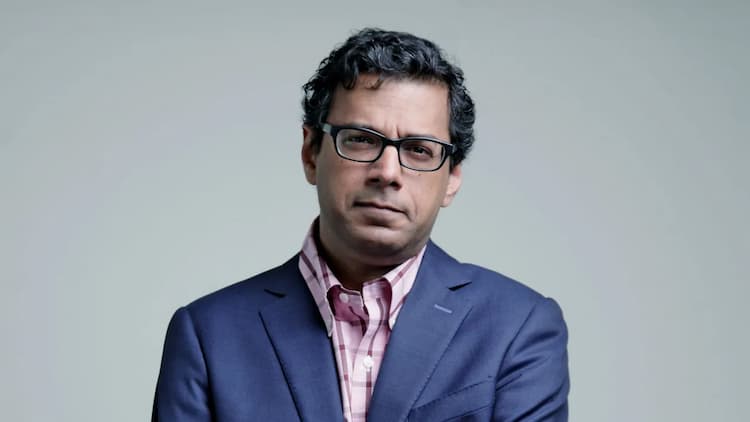Atul Gawande Biography
Atul Gawande is a well-known American surgeon, author, and public health researcher. He is famous for practicing general and endocrine surgery at Brigham and Women’s Hospital in Boston, Massachusetts.
He is a professor of the Harvard T.H. Chan School of Public Health’s Department of Health Policy and Management, as well as the Samuel O. Thier Professor of Surgery at Harvard Medical School. He is the executive director of Ariadne Labs, a cooperative center for health systems innovation, and the chairman of Lifebox, a nonprofit that strives to reduce surgical mortality worldwide. Gawande was named CEO of healthcare venture Haven, owned by Amazon, Berkshire Hathaway, and JP Morgan Chase, on June 20, 2018. He stepped down as CEO in May 2020, continuing as executive chairman while the organization looked for a new CEO.
How old is Atul Gawande? – Age
He is 57 years old as of 5 November 2022. He was born Atul Atmaram Gawande in 1965 in Brooklyn, New York, United States.
Atul Gawande Education
Gawande graduated from Stanford University with a bachelor’s degree in biology and political science in 1987. In 1989, he received an M.A. in Philosophy, Politics, and Economics (PPE) from Balliol College, Oxford, as a Rhodes Scholar. In 1995, he received his Doctor of Medicine from Harvard Medical School, and in 1999, he received his Master of Public Health from Harvard School of Public Health. In 2003, he finished his general surgical residency training at Harvard’s Brigham and Women’s Hospital.
Atul Gawande Family- Father
Gawande was born and raised in Brooklyn, New York, the son of two Marathi Indian immigrants to the United States, both doctors. He and his sister grew up in Athens, Ohio, where he graduated from Athens High School in 1983.
Who is Atul Gawande’s Married to?- Wife
He is married to Kathleen Hobson. The couple married in 1992. The couple has three children; Hunter Gawande, Hattie Gawande, and Walker Gawande.
Atul Gawande Net Worth
He has an estimated net worth of $2 million as of 2023.
Atul Gawande Books- Author
In 2009, Gawande published The Checklist Manifesto: How to Get Things Right, his third book. It highlights the need for order and planning (such as complete checklists) in medicine as well as in the greater society. In 2010, The Checklist Manifesto was a New York Times hardcover nonfiction bestseller.

Being Mortal: Medicine and What Matters, in the End, was published in October 2014 and quickly rose to the top of the New York Times bestseller list. It examines assisted living options at the end of life and the impact of medical operations on terminally sick persons. The book served as the inspiration for a documentary for the PBS television series “Frontline,” which premiered on February 10, 2015. In 2002, Gawande released his first book, Complications: A Surgeon’s Notes on an Imperfect Science, which contained reworked versions of 14 of his Slate and New Yorker articles. It was a finalist for the National Book Award.
Better: A Surgeon’s Notes on Performance, his second book, was published in April 2007. It focuses on three values that Gawande believes are most crucial for medical success: diligence, doing the right thing, and inventiveness. In the book, Gawande gives examples of persons who have exemplified these traits. The book aims to give diverse perspectives on divisive medical subjects such as malpractice law in the United States, physicians’ roles in death punishment, and care disparities between institutions.
Atul Gawande Career
His friend Jacob Weisberg, editor of Slate, approached him shortly after he started his residency and encouraged him to write to the online magazine. Gawande’s works were featured in The New Yorker, and he was hired as a staff writer in 1998. Gawande wrote an article for Slate in January 1998 titled “Partial truths in the partial-birth-abortion debate: Every abortion is gross, but the technique is not the issue,” in which he discussed how abortion policy should “hinge on the question of when the fetus first becomes a perceiving being” and “not on techniques at all–or even on when the fetus can survive outside the womb.” Politicians have criticized this piece for how it can be interpreted to encourage infanticide. Gawande analyzed the health care of two communities in Texas in a June 2009 New Yorker column to show why one town’s health care was more expensive than the other.
It argued, using McAllen, Texas as an example, that a corporate, profit-maximizing culture (which can provide significant amounts of unnecessary care) was a key factor in driving up costs, as opposed to a culture of low-cost, high-quality care provided by the Mayo Clinic and other efficient health systems. Dr. Atif Gawande’s piece in the New Yorker magazine elevated breast cancer awareness and was mentioned by President Barack Obama in his attempt to implement health-care reform. As a thank-you, Warren Buffett’s long-time business associate Charlie Munger mailed Gawande a check for $20,000 after reading the article. He returned the cheque and was then sent a $40,000 check, which he donated to the hospital where he had previously worked. He gave the TED lecture “How Do We Heal Medicine?” in 2012, which has received over 2 million views.
Gawande volunteered for Gary Hart’s campaign as an undergraduate. He joined Al Gore’s 1988 presidential campaign after graduating. He worked as a healthcare researcher for Rep. Jim Cooper (D-TN), who was the originator of the Conservative Democratic Forum’s “managed competition” healthcare concept. Gawande began medical school in 1990 but dropped out after two years to work as Bill Clinton’s healthcare adviser during the 1992 presidential campaign.
He was selected to President-elect Joe Biden’s COVID-19 Advisory Board on November 9, 2020. President Biden nominated Gawande for Assistant Administrator of US AID for the Bureau of Global Health on July 13, 2021. On September 29, 2021, the Senate Foreign Relations Committee held hearings on Gawande’s nomination. Senator Rubio’s assertion is based on a paper written by Gawande in 1998 in which he defended specific methods of late-term abortion and post-delivery infanticide. The committee recommended Gawande’s nomination to the Senate floor on November 3, 2021. Gawande was confirmed by the whole Senate on December 17, 2021, by a vote of 48-31.

